Certainly the most misunderstood produce in our kitchens, the dried fish is hardly considered a delicacy in restaurants. At homes, however, it's a different story
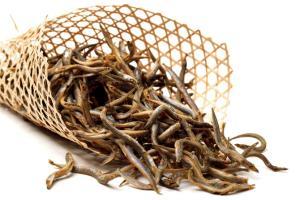
That familiar smell of Mumbai is that of dried fish. Whether mackerel or bombil, the gag-inducing stink is converted into mouth-watering dishes, and, yet, there will be those who will tell you that dried fish is a cultivated taste. So cultivated that if you try to search for them in menus across town, you will return mostly disappointed.
Meldan D'Cunha, owner of Soul Fry, a Goan restaurant in Bandra, tells us that dried fish is unfeasible in restaurants. "You cook them and the whole kitchen smells," he says. But that doesn't stop him from enjoying a good dried fish salad — made with tomatoes, vinegar and dried fish, such as mackerel, bombil and surmai. D'Cunha's love for dried fish is the same as anyone else's — make them when the sun shines and have them when it pours.
ADVERTISEMENT
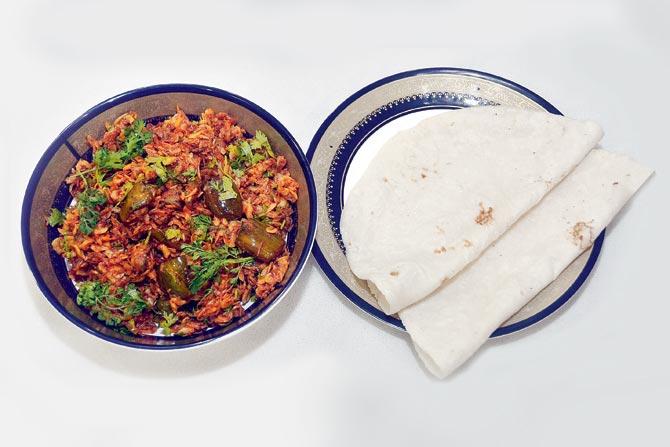
Food historian Odette Mascarenhas, who has extensively documented Goan culinary traditions, says that the practice of dried fish is extremely local, and a way to combat the long monsoon, when people couldn't venture out to fish or to the market even. However, there is no escaping the fact that despite its versatility, dried fish is seen as a humble produce. "Dried fish is not gourmet but it is perfectly acceptable to serve it to guests, should it be part of your cuisine. Take kismur, for instance, made of dried prawns. It is to be had with rice and prawn curry," she says.
If you wish to make the best of Mumbai's non-fishing season which ends on Narali Purnima, August 25, then dried fish remains your best friend. We reach out to four Mumbaikars who have embraced the aromas of dried fish.
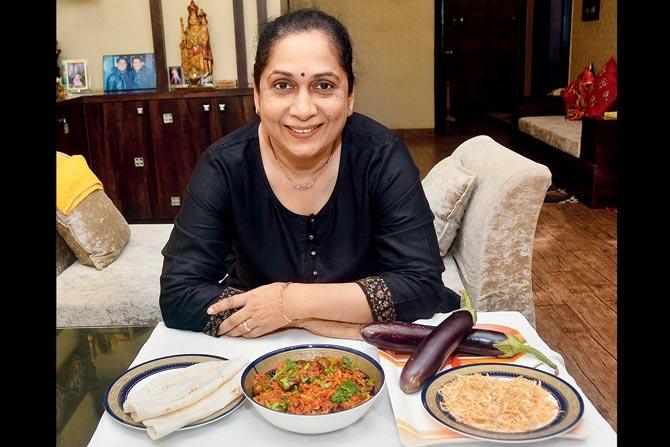
Helen Sankath at her Santacruz home. Pic/Sayyed Sameer Abedi
Jawla vangi
No East Indian wedding is complete without the jawla vangi. But the Sankaths don't need a special occasion to whip it up. "We prepare it at whim through the year because the ingredients are readily available in the market, and it's a tasty and easy recipe to make," says Santacruz resident Helen Sankath. While traditionally, the fish used to be dried at home, usually on the verandah or rooftops, over the years people prefer to buy it off the shelves. "The fishermen do half the job by removing water from the fish, and drying it in the sun. But you have to clean it well, because remember, these are often dried in the open on the seashore — so they are likely to have fine particles," she says.
She suggests picking prawns that are white in colour instead of the mild red, which she says have a strong stench. "It is important to remember that fish are dried with salt, so you have to take that into account while making any dish with dry fish," she says. When it comes to brinjal, any variant works. Sankath uses the signature East Indian masala for spice, along with the routine garam masala for flavour. The Sankaths have theirs with rice rotis.
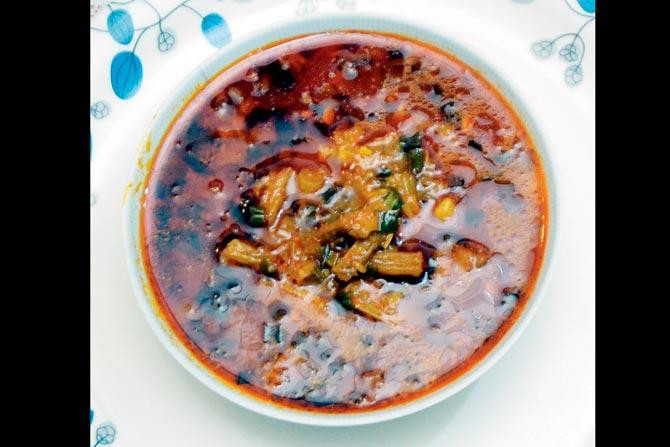
East Indian dried bombil tisavli
HOME chef and caterer Estella D'Souza, 56, was introduced to the delights of dried bombil only after she married her East Indian husband, Cedric. In Mangaluru, her hometown, dried bombil was nearly non-existent.
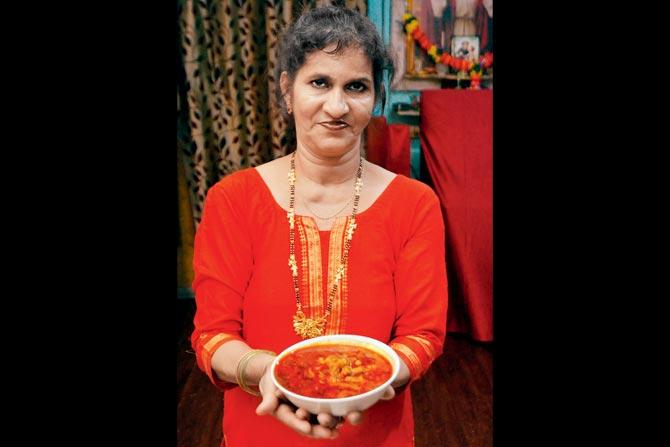
Pics/Datta Kumbhar
Based out of Uttan, D'Souza says that her family has several dishes made of dried bombil in the form of pickles, chutnies and bhajis. Many of these recipes are thanks to D'Souza's interest in her expanding her culinary skills. And one among them is a dried bombil tisavli, and D'Souza prepares a batch for us. The recipe involves used spring onions, ginger-garlic paste, and, most importantly, the famous East Indian bottle masala - a community preparation of ground spices. Even as she and her family enjoy this curry, D'Souza harkens back to her childhood. "We would have dried mackerel roasted in a woodfire and have it with congee. It was a simple and great combination," she says.
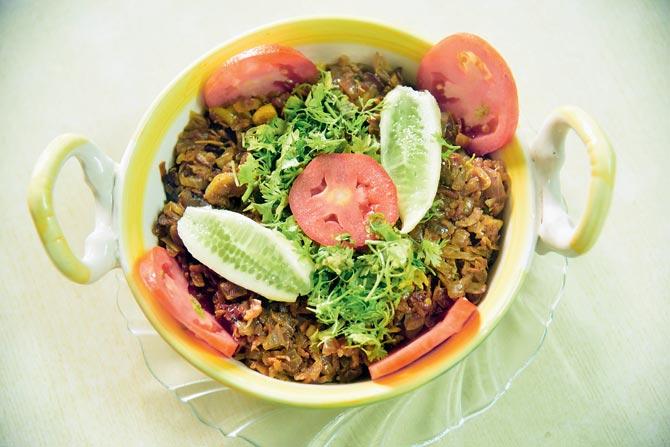
Golma chutney
While some may crinkle their nose at the overpowering smell of dried prawn, Renuka Desai has never had a problem with it. Originally from a village on the border of Malvan and Karwar, Desai, a Thane resident, learnt to prepare the jawala kismur, a chutney made with small prawns, in her late teens. It has been a favourite since. Also called Golma chutney, it's a popular side dish in the Konkan belt. "Frankly, it's not an off-putting odour, and if you taste the final dish you'll never complain about the fishy smell," she laughs.
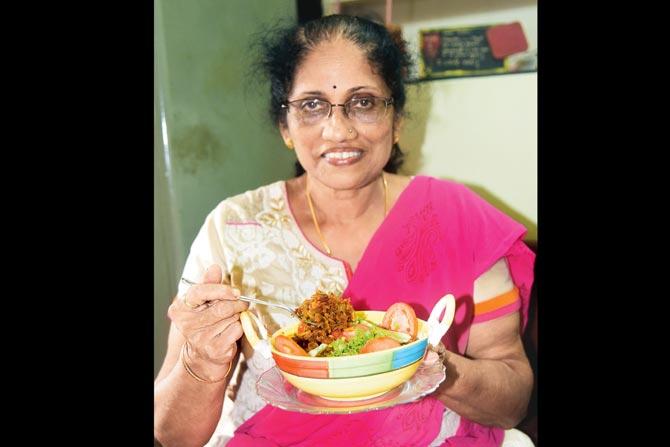
Pics/Sameer Markande
While there are two varieties of dry prawns in the market, sungata is larger in size and the golma is much smaller in comparison. "We use dried fish through the year, but more so in monsoon in the absence of fresh catch," adds Desai. Jawala kismur is preferred in the community because it's hassle-free. Here, the dried fish is stir-fried on medium flame until golden brown, and later mixed with finely chopped onion, red chilli, Malwani masala, tamarind and salt which are cooked in a separate serving bowl. At the fag end of the preparation, Desai adds a dash of grated coconut to the stir-fried dry fish for flavour. The result is a medium spiced, tangy chutney which can be eaten with either chapati or rice bhakri.
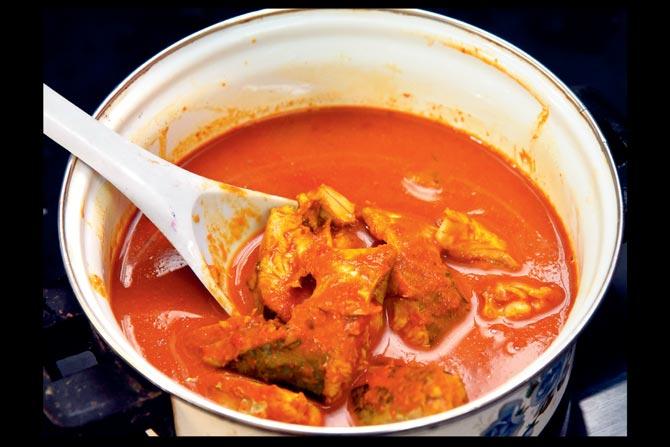
Mangalorean tato (shark) curry
IN Leena D'Souza's fridge at her home in Borivli, there is always a pack of jawla (dried shrimp). These little fellas are added to bhaji, such as gavar (cluster beans) and potatoes. "Back home in Mangaluru, dried fish was a real boon during certain seasons when fishing wasn't allowed. My mother used a variety of dried fish in her recipes. Frankly, I use it far lesser than she did, especially because the younger generation doesn't seem to prefer it a lot," says D'Souza, 58.
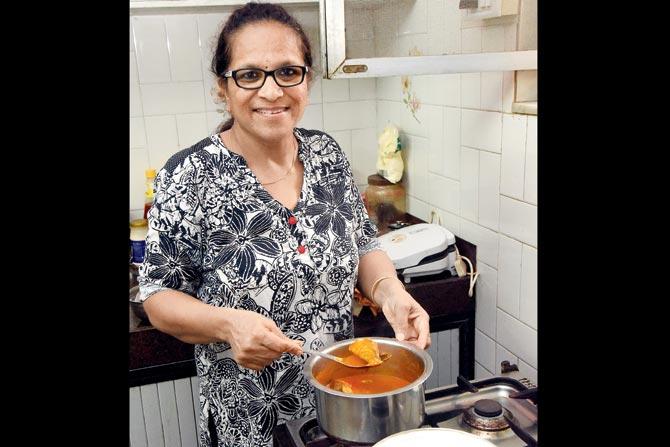
Pics/Nimesh Dave
D'Souza prepares bombil chutney, but what her family loves best is tato (shark) curry, with a recipe straight from Mangaluru. The super salty chunks of dried shark are pretty expensive in the market as compared to other dried fish. They can cost anywhere between R500-R800 for a kilo. D'Souza soaks these chunks overnight to drain excess salt and makes a light red curry using chickpeas, mustard and red chillies. "I finish it off with a tadka of curry leaves and garlic. It is a wonderful dish to have in the rainy season and it also has some health benefits. Shark, as you know, is great for your bones," says D'Souza.
Catch up on all the latest Mumbai news, crime news, current affairs, and also a complete guide on Mumbai from food to things to do and events across the city here. Also download the new mid-day Android and iOS apps to get latest updates
 Subscribe today by clicking the link and stay updated with the latest news!" Click here!
Subscribe today by clicking the link and stay updated with the latest news!" Click here!







